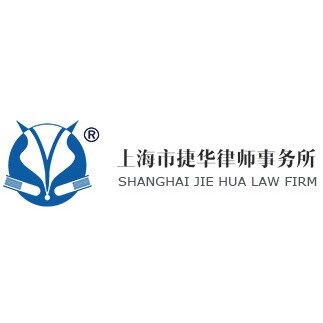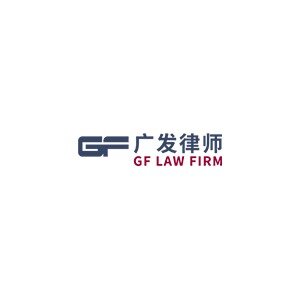Best Securities Lawyers in China
Share your needs with us, get contacted by law firms.
Free. Takes 2 min.
Or refine your search by selecting a city:
List of the best lawyers in China
About Securities Law in China
Securities law in China broadly regulates the issuance and trading of securities within its jurisdiction. It is primarily governed by the Securities Law of the People's Republic of China, which was first enacted in 1998 and has undergone several amendments. The legislation establishes a framework for the operation of securities markets to ensure orderly functioning, protect investors, and mitigate risks inherent in financial markets. The China Securities Regulatory Commission (CSRC) is the main regulatory body responsible for enforcing securities laws and overseeing market conduct.
Why You May Need a Lawyer
Individuals and businesses may require the expertise of a securities lawyer in several situations, including:
- When issuing securities to the public, navigating the complex compliance and registration processes.
- If facing regulatory investigations or enforcement actions by the CSRC or other authorities.
- In the case of securities fraud, insider trading allegations, or other disputes involving securities transactions.
- To interpret changes in securities regulation that may affect investment strategies or business operations.
- Guidance on corporate governance issues, ensuring that board activities align with legal and market expectations.
Local Laws Overview
The key aspects of local securities laws in China include:
- Registration and Disclosure: Public companies must register their securities and disclose pertinent information to the CSRC to promote transparency and protect investors.
- Market Conduct Regulations: Laws prohibiting practices such as insider trading, market manipulation, and fraudulent misrepresentation to safeguard market integrity.
- Corporate Governance: Mandates for board composition, shareholder rights, and disclosure requirements to enhance accountability and fairness in corporate management.
- Investor Protection: Initiatives to protect investors, including the establishment of mechanisms for compensation and resources for dispute resolution.
- Cross-Border Transactions: Specific guidelines governing foreign involvement in China's securities market to manage cross-border risks and ensure compliance.
Frequently Asked Questions
What is the role of the CSRC in China's securities market?
The CSRC is the primary regulatory authority overseeing the securities and futures market in China. Its role includes enforcing securities laws, regulating market activities, protecting investors, and maintaining market order.
How can a company go public in China?
A company can go public by undergoing an Initial Public Offering (IPO) process, which involves preparing required documentation, obtaining approval from the CSRC, and listing on a recognized stock exchange such as the Shanghai or Shenzhen Stock Exchange.
What are A-shares and B-shares in the Chinese stock market?
A-shares are domestically traded stocks of Chinese companies, typically denominated in yuan, while B-shares are also traded in China but are denominated in foreign currencies (such as USD or HKD) and are available to foreign investors.
Is insider trading illegal in China?
Yes, insider trading is illegal in China. The Securities Law prohibits entities or individuals from trading based on non-public information to maintain fair and transparent market conditions.
What are the penalties for securities fraud in China?
Penalties for securities fraud can include fines, imprisonment, and reputational damage. Additionally, involved parties might face disgorgement of illicit gains or be barred from participating in the securities industry.
How are foreign investors regulated in China's securities market?
Foreign investors are subject to specific regulations and are allowed to invest in China's A-share market through mechanisms like the Qualified Foreign Institutional Investor (QFII) scheme or the Stock Connect programs.
What should I do if I suspect securities law violations?
If you suspect securities law violations, you can report them to the CSRC or seek legal advice to understand potential ramifications and actions you can take.
What is the process for addressing disputes in securities transactions?
Dispute resolution may involve negotiation, mediation, or arbitration. The CSRC also has procedures for resolving grievances, and legal counsel can provide guidance based on the specific context of the dispute.
How can an investor ensure compliance with securities laws?
Investors should stay informed about legal updates and consider seeking professional advice. Due diligence and maintaining proper records are key steps in ensuring compliance.
What recent changes have affected China's securities landscape?
China's securities landscape evolves with global and domestic economic changes, regulatory reforms, and technological advancements. Recent years have seen increased emphasis on investor protection and market opening to foreign investors.
Additional Resources
For more information, you may consider exploring these resources:
- China Securities Regulatory Commission (CSRC) - For regulatory guidelines and official announcements.
- Shanghai and Shenzhen Stock Exchanges - For market data and updates.
- Legal firms specializing in Chinese securities law - For expert advice and services.
- Legal publications and journals on Chinese securities regulation and market practices.
- Investor protection associations providing guidance and support for investors.
Next Steps
If you need legal assistance in securities, consider the following steps:
- Identify the nature of your legal issue, whether it's compliance, disputes, or regulatory inquiries.
- Compile all necessary documentation relevant to your situation, such as transaction records, agreements, and communications.
- Consult with a lawyer specializing in Chinese securities law for tailored guidance and representation.
- Stay informed about updates in securities regulations that may affect your interests.
- Leverage additional resources and professional networks to maintain compliance and manage risks effectively.
Lawzana helps you find the best lawyers and law firms in China through a curated and pre-screened list of qualified legal professionals. Our platform offers rankings and detailed profiles of attorneys and law firms, allowing you to compare based on practice areas, including Securities, experience, and client feedback.
Each profile includes a description of the firm's areas of practice, client reviews, team members and partners, year of establishment, spoken languages, office locations, contact information, social media presence, and any published articles or resources. Most firms on our platform speak English and are experienced in both local and international legal matters.
Get a quote from top-rated law firms in China — quickly, securely, and without unnecessary hassle.
Disclaimer:
The information provided on this page is for general informational purposes only and does not constitute legal advice. While we strive to ensure the accuracy and relevance of the content, legal information may change over time, and interpretations of the law can vary. You should always consult with a qualified legal professional for advice specific to your situation.
We disclaim all liability for actions taken or not taken based on the content of this page. If you believe any information is incorrect or outdated, please contact us, and we will review and update it where appropriate.
Browse securities law firms by city in China
Refine your search by selecting a city.















